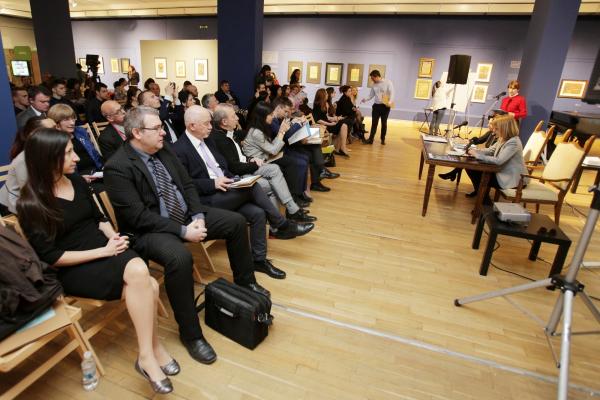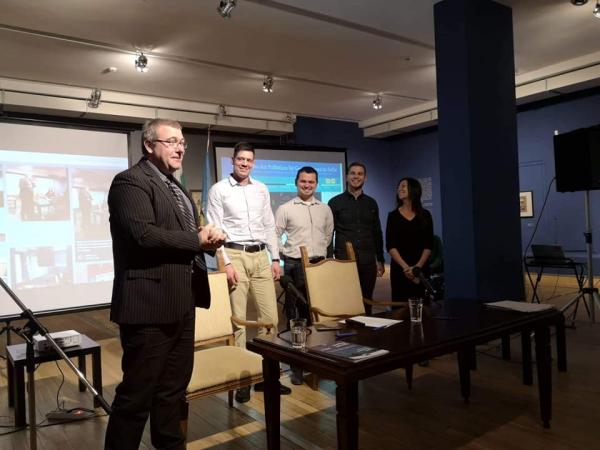31.03.2019
On 29 March 2019 a team of the Faculty of Economics and Business Administration (FEBA) of Sofia University presented a Model for predicting air pollution in Sofia by using geo-locations during the Sofia Innovations Workshop, organised by Sofia Municipality (Sofia Development Association), with the financial support of JRC – Joint Research Center of the European Commission.
Mrs. Charlina Vicheva, deputy director of JRC was present at the presentation of the study commissioned by JRC to the Faculty of Economics at Sofia University "St. Kliment Ohridski" and carried out by a team consisting of: Assoc. Prof. Boryana Bogdanova and Assoc. Prof. Angel Marchev – Senior Researchers; students from the Faculty of Economics – Vladimir Zakov, Dennis Stefanov and Kiril Genov – junior researchers, and Assoc. Prof. Atanas Georgiev – Project Coordinator. The data and methodology have already been published at sofiaPM10.report and can be used by anyone.
Charlina Vicheva and Yordanka Fandakova, Mayor of Sofia, signed a Memorandum of Understanding during a ceremony in Sofia. The JRC will cooperate with the capital’s authorities in the fields of climate, air quality, environment, transport, energy deficiency and efficiency, public safety and security, specialization in intelligent technologies, digital transformation and cyber security. Special attention will be given to cities, including creative cities and the future of cities.
This cooperation is based on a successful series of already existing exchanges in various fields, including digital transformation, cultural and creative cities and air quality.
The partners will jointly organise "SOFAIR2" - an international conference for local authorities on air quality to be held on April 12, 2019.
The aim of the "Science Meets Parliament - Science Meets Regions" pilot project was for the innovation camp to come up with innovative, non-standard solutions to the major societal challenges in the city: energy shortages, sustainable transport and mobility, social effects of innovation. The Innovation Camp is an entrepreneurial discovery process requiring a higher degree of engagement and interaction on the part of participants than in traditional conferences. The methodology was developed by the JRC in close cooperation with the Committee of the Regions.

